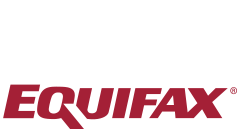
Brad Davies
Open Banking Product Manager
Equifax

One leading framework bringing clarity to this area is the Partnership for Carbon Accounting Financials (PCAF) Standard. PCAF offers a vital methodology for financial institutions to assess financed emissions across various asset classes. It acknowledges inherent data challenges, especially with SMEs, and promotes the use of emission factors while advocating for improved data collection.
Innovative approaches are emerging to enhance the accuracy of financed emissions data. For example, Equifax uses AI-driven solutions to extract precise emissions data from both SME and larger enterprise sectors. This capability gives banks more specific insights, helping them move past less precise sector-level estimates and make more informed decisions. Such granular data is crucial for effective emission reduction strategies.
Financial institutions are increasingly engaging directly with clients on data collection. There is a growing trend towards encouraging or even requiring clients to report comprehensive emissions data as a prerequisite for financing. While this demands significant relationship-building and data-sharing support, it fosters greater transparency and accountability across the lending ecosystem. This approach recognises that addressing financed emissions is a shared responsibility, requiring concerted efforts from both lenders and borrowers.
Furthermore, some institutions are developing sector-specific approaches, tailoring their methodologies to the unique emission profiles of different industries. These bespoke methods often involve assigning varying weightings to client emissions based on their sector and activity, while carefully considering scope one (direct), scope two (indirect from purchased energy), and scope three (all other indirect) emissions. This nuanced perspective allows for a more accurate reflection of an institution’s true climate impact.
To bridge data gaps, financial institutions are increasingly relying on third-party data vendors and integrations to estimate emissions effectively, even when direct client data is unavailable. These partnerships are instrumental in enhancing the robustness and completeness of financed emissions calculations.
While a single, universal solution to the financed emissions challenge remains elusive, we believe the answer lies in a model similar to that of a credit bureau. Imagine a trusted entity, like Equifax, that already holds or can seamlessly integrate vast amounts of crucial financial data from various sources. This is precisely why we developed our Financed Emissions Calculator products.
The product directly addresses the pain points of manual calculations, fragmented data gathering, and conflicting methodologies, all while ensuring alignment with global standards. The development of tools like Equifax’s Financed Emissions Calculator further underscores the industry’s commitment to tackling this critical aspect of sustainable finance.
The journey towards a transparent and low-carbon commercial lending sector is ongoing, but the strides being made suggest a future where financial flows are increasingly aligned with climate goals. To find out more, email contactus@equifax.com.
At Equifax, we believe knowledge drives progress. As a global data, analytics, and technology company, we play an essential role in the global economy by helping financial institutions, companies, employers, and government agencies make critical decisions with greater confidence. Our unique blend of differentiated data, analytics, and cloud technology drives insights to power decisions to move people forward.
Headquartered in Atlanta and supported by nearly 15,000 employees worldwide, Equifax operates or has investments in 24 countries in North America, Central and South America, Europe, and the Asia Pacific region.
Equifax Ltd is one of the Equifax group companies based in the UK. Equifax Ltd is authorised and regulated by the Financial Conduct Authority. For more information, visit equifax.co.uk and follow the company’s news on LinkedIn.
For more information, visit www.equifax.co.uk.